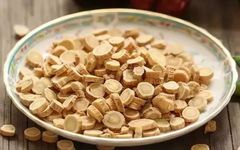Astragalus (Huang Qi) is a commonly used herb in Traditional Chinese Medicine (TCM) known for its high nutritional value. Drinking Astragalus tea can significantly enhance health benefits. Regular consumption not only boosts the immune system but also protects the cardiovascular system. Do you know how to prepare Astragalus tea? What are the benefits of drinking Astragalus tea? Today, we will explore the top 10 benefits of drinking Astragalus tea.
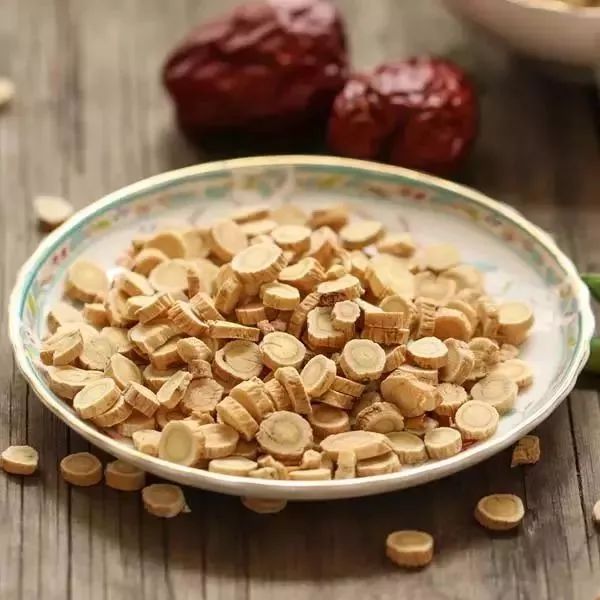
 Introduction to Astragalus
Introduction to Astragalus
Astragalus, also known as Huang Qi, is a perennial herb that grows to a height of 50-100 cm. It has a thick, woody main root that is often branched and grayish-white in color. The upright stem is branched at the top, with fine ridges covered in white hairs. It is primarily found in regions such as Inner Mongolia, Shanxi, Gansu, and Heilongjiang.
The medicinal use of Astragalus dates back over 2000 years, known for enhancing immune function, protecting the liver, promoting diuresis, anti-aging, stress resistance, lowering blood pressure, and exhibiting broad-spectrum antibacterial effects. However, it should be avoided in cases of excess pathogenic heat, Qi stagnation, food stagnation, initial stages of abscesses, or in individuals with Yin deficiency and Yang excess.
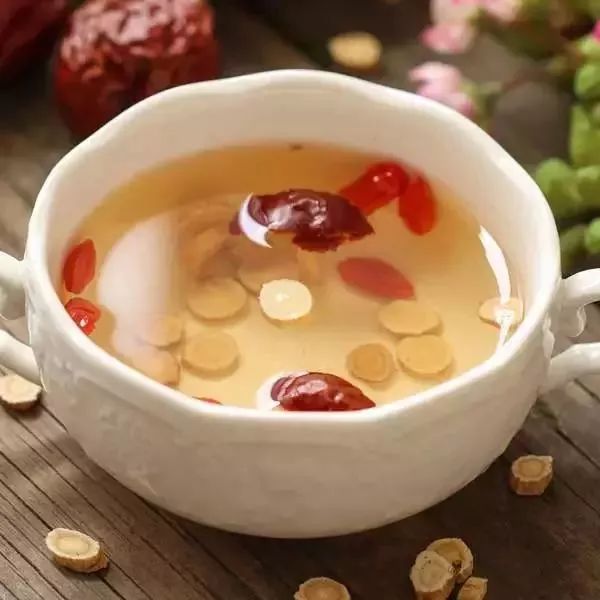

 How to Prepare Astragalus Tea
How to Prepare Astragalus Tea

It is commonly said that “drinking Astragalus soup regularly can prevent illness and maintain health.” This means that frequently brewing Astragalus as tea has excellent health benefits. Astragalus tea can tonify Qi without being greasy, improve Qi deficiency and anemia, enhance physical strength, and promote longevity. For better effects, it can be combined with other herbs such as Goji berries (Gou Qi Zi), Codonopsis (Dang Shen), and Poria (Fu Ling).
1. Use about 30 grams of Astragalus daily, decoct it in water, and consume. Alternatively, brew it as tea. Combining 30 grams of Astragalus with 15 grams of Goji berries is particularly effective for those with Qi and blood deficiency.
2. Take about 50 grams of Astragalus, decoct it, and use the broth to cook rice or porridge, resulting in Astragalus rice or porridge, which is also very beneficial.
3. Some people like to add Astragalus when cooking meat, chicken, or duck to enhance the nourishing effect.
Astragalus can be brewed in water, but it is essential to use freshly boiled water to extract its medicinal properties. However, this method may only extract about 30-40% of its efficacy, which can be wasteful; therefore, decoction is recommended for better results.
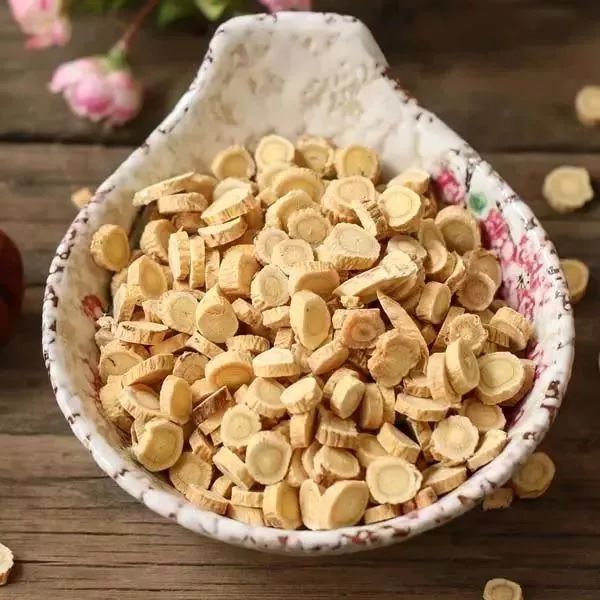

 Benefits of Drinking Astragalus Tea
Benefits of Drinking Astragalus Tea

Astragalus is not only used as a medicinal herb but can also be added to food as an ingredient. Additionally, a simple method for daily health maintenance is to brew it in water. Drinking Astragalus tea can effectively promote blood circulation in the body, and for patients with chronic illnesses, it can also have therapeutic effects.
In TCM, Astragalus is known for its excellent ability to tonify Qi, comparable to that of Ginseng (Ren Shen).
Moreover, regular consumption can help reduce swelling, promote diuresis, enhance beauty, lower blood sugar, and prevent colds, making it a versatile remedy for various ailments. Astragalus can be easily purchased at most herbal shops and is relatively inexpensive.
In daily life, about 100 grams of Astragalus can be brewed for approximately six to seven times, providing excellent nourishing effects. However, it is essential to be cautious when purchasing Astragalus, as many unscrupulous vendors may sell inferior products. When buying Astragalus, one should not only examine its appearance and color but also smell it; genuine Astragalus has a distinct bean-like aroma, indicating it is safe to purchase.
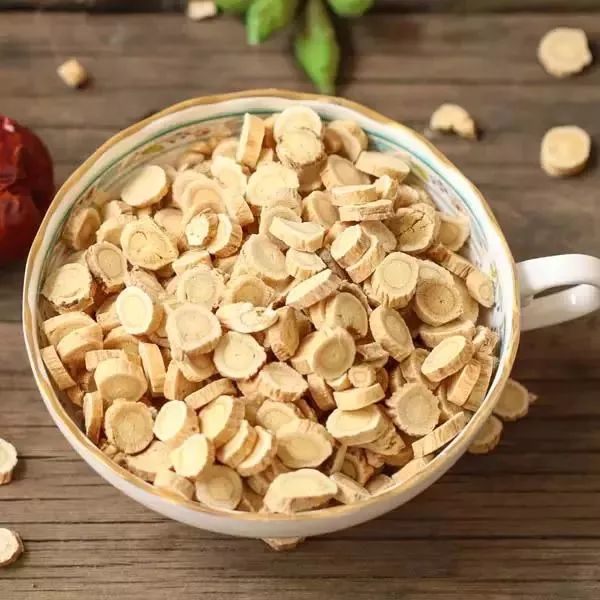
Experienced TCM practitioners recommend that office workers should consistently drink some Astragalus tea daily, as it can significantly improve physical constitution and immunity, promote spleen and stomach health, and address issues such as fatigue, cough, and colds.
If you feel under significant stress and increasingly fatigued, drinking some Astragalus tea can help rejuvenate your body.
Many people experience puffiness around the eyes upon waking, which is intolerable for many beauty-conscious women. To improve this condition, simply brewing a cup of Astragalus tea can help restore your appearance.
For excellent beauty-enhancing effects, combining Astragalus with Bai Zhi (Angelica Dahurica) and Hong Hua (Carthamus tinctorius) in tea can lead to increasingly fair skin with consistent use. Now, let’s take a look at the magical benefits of drinking Astragalus tea.
- Enhance Physical Strength and Boost Immunity
Drinking Astragalus tea can address excessive sweating due to Qi deficiency. Spleen deficiency can lead to fatigue, while lung deficiency can cause cough and shortness of breath; these issues can be resolved by drinking Astragalus tea. During flu season or in autumn and winter, drinking Astragalus tea can help prevent colds.
- Protect the Cardiovascular System
Astragalus has properties that strengthen the heart, lower blood pressure, prevent arrhythmias, and protect the cardiovascular system, making it suitable for individuals with heart disease, angina, heart failure, coronary heart disease, and hypertension.
- Liver Protection
Drinking Astragalus tea can protect the liver. Individuals with hepatitis, gastric ulcers, gastritis, or liver damage can benefit from consuming Astragalus tea.
- Regulate Blood Sugar
Astragalus tea can lower blood sugar levels and has a synergistic effect with Metformin and insulin in raising blood sugar levels.
- Anti-Tumor Effects
The polysaccharides in Astragalus can enhance the efficacy of anti-tumor medications while reducing side effects. For cancer patients, long-term consumption of Astragalus can yield significant anti-cancer effects.
- Diuretic and Anti-Edema
Whether it’s morning puffiness around the eyes, leg swelling, or edema caused by hypertension and diabetes, drinking Astragalus tea can help alleviate water retention.
- Antibacterial and Antiviral
Drinking Astragalus tea has inhibitory effects on dysentery, pneumonia, hemolytic streptococcus A, B, C, and Staphylococcus aureus, epidermidis, and saprophyticus.
- Tonify Qi and Raise Yang
Astragalus tea can be used for conditions like prolapse of the rectum, uterine prolapse, abnormal uterine bleeding, dizziness, and fatigue caused by Qi deficiency, often used in conjunction with Sheng Ma (Cimicifuga) and Chai Hu (Bupleurum).
- Stabilize the Exterior and Reduce Sweating
Commonly used for spontaneous sweating due to Qi deficiency. If the exterior Qi is not solid, and one is exposed to wind-cold, leading to sweating, Astragalus combined with Bai Zhu (Atractylodes) and Fang Feng (Saposhnikovia) can be effective with prolonged use.
- Promote Wound Healing and Drain Pus
Used for abscesses that do not rupture and have internal heat, promoting rupture and localized effects. After abscesses rupture, it can promote tissue regeneration and closure, often combined with Jin Hua (Lonicera) and Zao Jiao (Gleditsia).
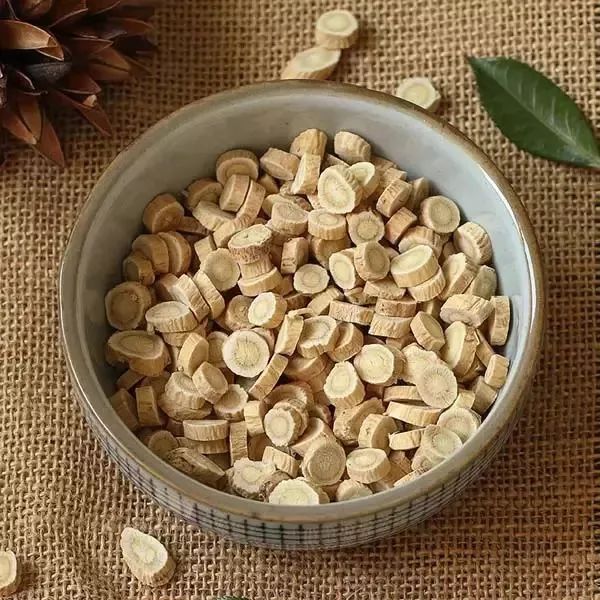


Side Effects of Drinking Astragalus Tea
The most common side effects include rapid onset of “heat symptoms” such as facial redness, irritability, poor sleep or insomnia, sore throat, elevated blood pressure, or dizziness, which may even worsen the condition.
Clinically, it is common for individuals to use Astragalus excessively or in large doses without any illness, which can be a dangerous behavior.
When using Astragalus, it is advisable to start with a small amount and gradually increase while monitoring for any signs of heat symptoms or worsening of pre-existing conditions.
If symptoms occur, it should be discontinued or combined with other herbs. If symptoms like fatigue, excessive sweating, or shortness of breath improve, and there are no side effects, the dosage can be increased.
A safer approach is to start with Dang Shen (Codonopsis) for effectiveness without side effects before adding or switching to Astragalus, using a gradual increase in dosage to avoid side effects. The safest method is to use it in combination with other herbs.
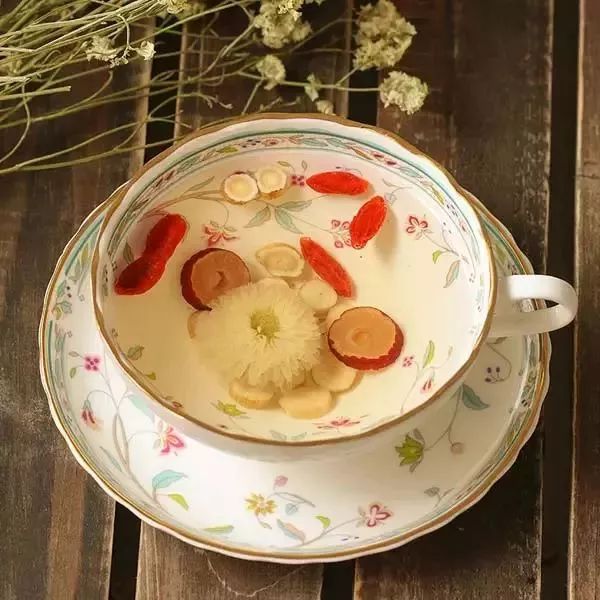


Three Types of Kidney Deficiency: Caution with Astragalus
Patients with kidney disease characterized by Yin deficiency, damp-heat, or excessive heat toxicity should generally avoid Astragalus, as it may lead to toxic side effects. Astragalus is sweet and slightly warm in nature, and its use in Yin-deficient patients can exacerbate heat and harm Yin, leading to blood movement; while those with damp-heat or excessive heat toxicity may experience stagnation of pathogens, worsening their condition. If Astragalus must be used, it should be combined with appropriate herbs.
Yin deficiency symptoms include: heat in the palms and soles, dry mouth and throat, lower back pain, tidal fever, night sweats, insomnia with vivid dreams, red tongue with little coating, and thin rapid pulse. Damp-heat symptoms include: bitter mouth, dry mouth, yellow greasy tongue coating, etc.
Excessive heat toxicity symptoms include: various purulent infections such as acne, throat infections, peritonitis, characterized by facial redness, red throat, dry throat, sore throat, bitter dry mouth, red lips and tongue, yellow dry tongue coating, and slippery rapid pulse.
Yin-deficient patients using Astragalus must combine it with Yin-nourishing herbs such as Sheng Di (Rehmannia), Shu Di (Rehmannia), Xuan Shen (Scrophularia), Mai Dong (Ophiopogon), Tian Dong (Asparagus), and Yu Zhu (Polygonatum). Damp-heat patients must combine it with herbs that clear damp-heat such as Huang Lian (Coptis), Yin Chen (Artemisia), and Huang Qin (Scutellaria). Patients with excessive heat toxicity must combine it with herbs that clear heat and detoxify such as Huang Lian, Zhi Zi (Gardenia), Da Huang (Rhubarb), and Bai Jiang Cao (Patrinia).

Contraindications for Drinking Astragalus Tea
The primary benefit of Astragalus is to tonify Qi, which not only treats Qi deficiency but also prevents colds and enhances beauty, making it a popular tonic among many.
Astragalus has been used in China for over 2000 years and is favored by many. However, it is not suitable for everyone. Below are the contraindications for drinking Astragalus tea:
Many people enjoy drinking Astragalus tea daily, especially women who like to brew it with red dates (Hong Zao) and Goji berries, which not only enhances physical strength but also improves complexion.
However, the amount of Astragalus used each time should not exceed 15 grams and should be divided into two or three doses to avoid excessive consumption. If Astragalus is used in excess, patients may experience dizziness, poor sleep quality, flushed cheeks, and irritability.
Traditional TCM practitioners inform us that drinking Astragalus tea does not typically produce side effects, but why do some individuals experience discomfort after excessive consumption? This is primarily due to the disruption of the internal balance when excessive Astragalus enters the body, leading to various discomforts.
While Astragalus can effectively improve memory decline and alleviate dizziness and fatigue, excessive consumption may not only fail to improve dizziness but may worsen the condition, leading to more severe dizziness and inadequate recovery of memory.
Astragalus is a warming tonic herb; if taken in excess, the body may exhibit symptoms such as irritability and facial flushing.
While it is said that to achieve the best health benefits, one should drink a cup of Astragalus tea daily, it is advisable to divide this into two or three doses and not consume it all at once. Additionally, the amount of Astragalus used for brewing tea should be controlled at around 15 grams, while some online recipes suggest using 20-30 grams, which should be assessed on a case-by-case basis.
Furthermore, the amount of Astragalus used for brewing tea differs from that used for cooking porridge; for tea, it should be around 15 grams, while for porridge, about 50 grams is recommended. In fact, whether brewing tea or cooking porridge, the amount of Astragalus used should be clearly defined, and one should avoid exceeding the recommended dosage!


Astragalus is a natural herb commonly used in various forms such as tea, porridge, and soup. Although Astragalus and Ginseng have similar effects, their prices differ significantly, making Astragalus a popular choice for daily health maintenance.
However, it is important to note that Astragalus is not suitable for daily consumption, and not everyone can drink it. The specifics are as follows:
1. Patients with kidney Yin deficiency, damp-heat, or excessive heat toxicity should avoid drinking Astragalus tea, as it will not restore health and may worsen the condition. These patients should use herbs like Huang Lian, Da Huang, Bai Jiang Cao, and Zhi Zi instead of Astragalus.
2. Patients with tuberculosis, characterized by symptoms such as coughing blood, dry mouth, and fever, should also avoid using Astragalus tea alone and should combine it with appropriate herbs based on their specific condition.
3. Women during menstruation should not consume Astragalus tea, as it may adversely affect menstruation and the body.
4. Patients with colds and fevers should also avoid Astragalus, as it is not conducive to reducing fever.
5. Pregnant women should exercise caution when consuming Astragalus, as it may lead to miscarriage and harm both the fetus and the mother, especially in late pregnancy.
If a pregnant woman accidentally consumes Astragalus, it may lead to a decrease in amniotic fluid, potentially prolonging labor and increasing risks for the fetus.
Additionally, research has shown that consuming Astragalus may increase the rate of chromosomal abnormalities and micronuclei, which can harm the future child’s physical and intellectual development. Therefore, women who are pregnant or planning to conceive should be cautious when consuming Astragalus.
Recommendations
There are many ways to prepare Astragalus tea. In addition to brewing it directly, it can also be combined with other herbs or floral teas, such as red dates, Schisandra (Wu Wei Zi), licorice (Gan Cao), cinnamon (Gui Zhi), safflower (Hong Hua), Goji berries, and rose petals, which are all excellent choices.
Combining Astragalus with red dates and Goji berries for tea can effectively enhance physical strength and has benefits for vision and blood replenishment, making it particularly suitable for office workers. Astragalus can also be brewed directly with boiling water, which not only revitalizes the body but also improves physical constitution and skin tone, achieving multiple benefits.
Search for the public account Chinese Cordyceps Network ID: chinadcxc to follow this platform for information on the efficacy and usage of the following nourishing herbs:Cordyceps, black goji berries, bird’s nest, Panax notoginseng, saffron, Maca, reishi, donkey-hide gelatin, American ginseng, fish maw, sea cucumber, Xian Tian Guo, honey, moringa seeds, Dong Guo Li, Tian Ma, deer antler, red dates, ginseng, red ginseng, snow chrysanthemum, Cistanche, Dendrobium, Chuan Bei, Dang Shen, brown sugar, snow frog, Kachihua, Astragalus, Angelica, etc. (continuously updated)

